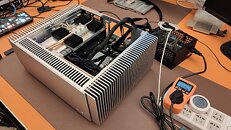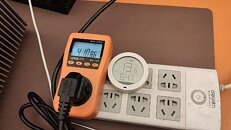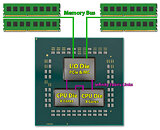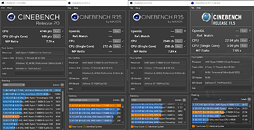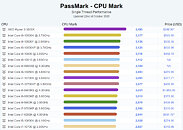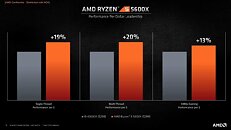
Intel Core i5-12400 Early Review Dubs it a Game Changer
The upcoming Intel Core i5-12400 processor could be a game changer in the mid-range, according to an early gaming performance review by Igor's Lab, which landed simulated the chip by disabling the E-cores, and setting the right clock speeds and power values. Based on the smaller H0 silicon of "Alder Lake-S," which physically only features six "Golden Cove" CPU cores, and no "Gracemont" E-core clusters, the i5-12400 ticks at 2.50 GHz, and 4.40 GHz boost frequency, with 65 W base power, and 117 W maximum turbo power (MTP).
Testing reveals that this MTP value lends the processor some stellar energy-efficiency numbers, and the chip strikes a performance/Watt sweetspot. Igor's Lab, however, recommends that for the best efficiency, the i5-12400 should be paired with DDR4 memory. In its testing, DDR4-3733 (with Gear 1) was used. Gaming benchmarks put out by Igor's Lab shows that the Core i5-12400 trades blows with the AMD Ryzen 5 5600X "Zen 3" in a number of games, beating it in several of them by virtue of higher IPC of the "Golden Cove" cores, and beating the i7-11700K "Rocket Lake" 8-core/16-thread processor at a fraction of its power-draw. A word of caution, though, is that the i5-12400 was simulated on a C0 silicon, possibly the i9-12900K, and the real i5-12400 die may not have the same refinements or electrical characteristics. Even with the E-core cluster disabled, the L3 cache size isn't the same (30 MB vs. 18 MB). Catch the review in the source link below.
Testing reveals that this MTP value lends the processor some stellar energy-efficiency numbers, and the chip strikes a performance/Watt sweetspot. Igor's Lab, however, recommends that for the best efficiency, the i5-12400 should be paired with DDR4 memory. In its testing, DDR4-3733 (with Gear 1) was used. Gaming benchmarks put out by Igor's Lab shows that the Core i5-12400 trades blows with the AMD Ryzen 5 5600X "Zen 3" in a number of games, beating it in several of them by virtue of higher IPC of the "Golden Cove" cores, and beating the i7-11700K "Rocket Lake" 8-core/16-thread processor at a fraction of its power-draw. A word of caution, though, is that the i5-12400 was simulated on a C0 silicon, possibly the i9-12900K, and the real i5-12400 die may not have the same refinements or electrical characteristics. Even with the E-core cluster disabled, the L3 cache size isn't the same (30 MB vs. 18 MB). Catch the review in the source link below.
















